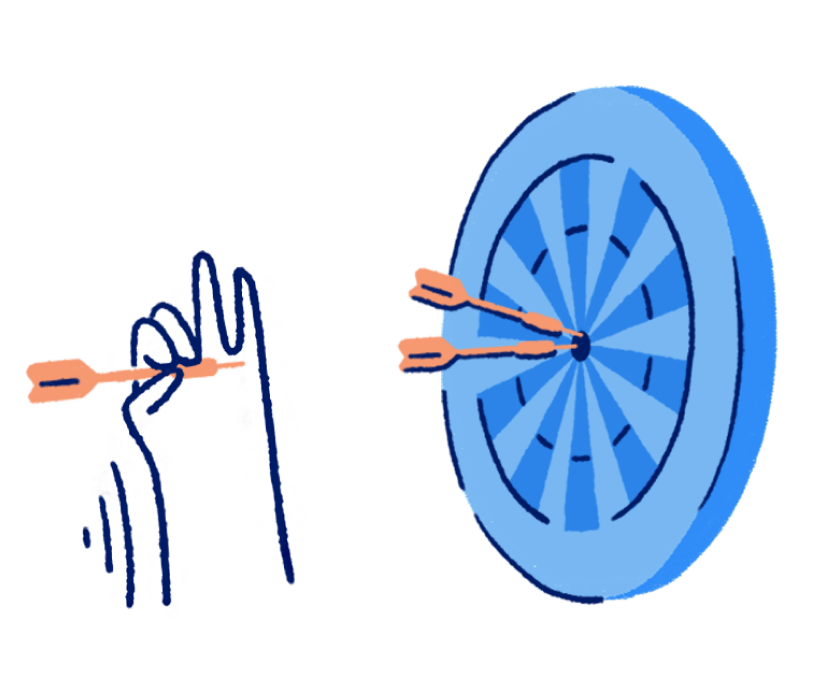Cash flow calculator
Use this calculator to determine if the money coming into your business (i.e. revenue and income) is enough to cover your financial obligations (i.e. payroll and other expenses) for a set period. For a business to be successful in the long term, it needs to generate profits while also being cash flow positive.
What is cash flow?
There are different types of budgets depending on what kind of performance measure you want to examine. Here, we’ll define a budget as a projection of how much your company will spend versus how much revenue it will generate over a period of time. Depending on the results, you can then make more informed decisions when it comes to managing your cash flow, allocating money for expenses, and setting revenue targets.
How to manage your cash flow like a pro
Your cash flow lies at the heart of your business. With proper cash flow management, you can minimize the possibility of a shortfall. Here are a few helpful tips:
- Rather than just project your cash flow for an upcoming month, try to plan ahead for the year. This will help you anticipate slow periods so you can set aside enough cash to cover your expenses.
- Getting paid on time – and in full – is key to managing your cash flow. See how you can get paid in as fast as 2 business days with a free Wave account.
- One of the common mistakes made by new business owners is not keeping enough of a cash buffer on hand. To avoid this, try to maintain at least two months of operating expenses in your business savings account.
- You can view automatic and up-to-date cash flow reports by using Wave's free business accounting software.
- Check out our other accounting tools that can help you calculate sales tax, budget, burn rate, and more!

How to use the cash flow calculator
To calculate your cash flow with this free tool, follow these instructions:
Essential parts of a cash flow report
There are 3 main elements of a cash flow statement:
- Gross cash inflow: This is the total amount of money coming into your business; this includes money generated from selling your goods and services, money from loans or lines of credit, and other sources of incoming cash
- Gross cash outflow: This is the total amount of money exiting your business; this can be from making business purchases, generating inventory, paying sales taxes, paying back a loan or line of credit, payroll, and more
- Net cash change: This is the net difference between your cash inflow and cash outflow; you should strive towards having a positive cash flow (more inflowing cash than outflowing cash)

There are 3 main elements of a cash flow statement:
- Gross cash inflow: This is the total amount of money coming into your business; this includes money generated from selling your goods and services, money from loans or lines of credit, and other sources of incoming cash
- Gross cash outflow: This is the total amount of money exiting your business; this can be from making business purchases, generating inventory, paying sales taxes, paying back a loan or line of credit, payroll, and more
- Net cash change: This is the net difference between your cash inflow and cash outflow; you should strive towards having a positive cash flow (more inflowing cash than outflowing cash)
Benefits of managing your business cash flow closely
- Identify and plan for cash shortages in the upcoming year
- Forecast your upcoming expenses and see exactly how much money you'll need on hand to cover rent, payroll, and any other recurring monthly expenses
- Prepare for slow seasons and ensure you have enough money on hand before spending on your business
- Become a better financial decision maker as you improve your cash flow projections each month
How to manage your cash flow like a pro
Your cash flow lies at the heart of your business. With proper cash flow management, you can minimize the possibility of a shortfall. Here are a few helpful tips:
- Rather than just project your cash flow for an upcoming month, try to plan ahead for the year. This will help you anticipate slow periods so you can set aside enough cash to cover your expenses.
- Getting paid on time – and in full – is key to managing your cash flow. See how you can get paid in as fast as 2 business days with a free Wave account.
- One of the common mistakes made by new business owners is not keeping enough of a cash buffer on hand. To avoid this, try to maintain at least two months of operating expenses in your business savings account.
- You can view automatic and up-to-date cash flow reports by using Wave's free business accounting software.
- Check out our other accounting tools that can help you calculate sales tax, budget, burn rate, and more!



